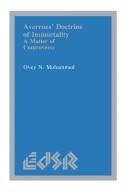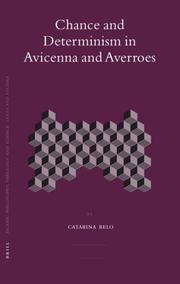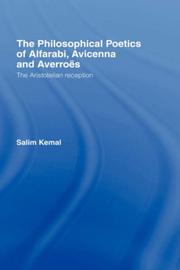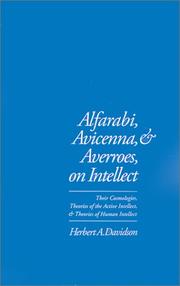| Listing 1 - 10 of 13 | << page >> |
Sort by
|
Book
ISBN: 9788376830537 0521418488 9780521418485 9781139027410 1316314707 1316321401 1316308022 1316328082 1316331423 1316324745 1316318044 1139027417 1316287203 9781316318041 Year: 2015 Publisher: New York
Abstract | Keywords | Export | Availability | Bookmark
 Loading...
Loading...Choose an application
- Reference Manager
- EndNote
- RefWorks (Direct export to RefWorks)
As a philosopher, psychologist, and physician, the German thinker Hermann Lotze (1817-81) defies classification. Working in the mid-nineteenth-century era of programmatic realism, he critically reviewed and rearranged theories and concepts in books on pathology, physiology, medical psychology, anthropology, history, aesthetics, metaphysics, logic, and religion. Leading anatomists and physiologists reworked his hypotheses about the central and autonomic nervous systems. Dozens of fin-de-siècle philosophical contemporaries emulated him, yet often without acknowledgment, precisely because he had made conjecture and refutation into a method. In spite of Lotze's status as a pivotal figure in nineteenth-century intellectual thought, no complete treatment of his work exists, and certainly no effort to take account of the feminist secondary literature. Hermann Lotze: An Intellectual Biography is the first full-length historical study of Lotze's intellectual origins, scientific community, institutional context, and worldwide reception.
Knowledge, Theory of --- Metaphysics --- Aristotle. --- Averroës, --- Giles, --- Aristoteles. --- Abū al-Walīd ibn Rushd, --- Abū al-Walīd Muḥammad ibn Aḥmad ibn Rushd, --- Abū el-Walīd ibn Roshd, --- Abuʼl-Walid Muhammad bin Rusjd, --- Alṿalid ibn Rushd, --- Averroè, --- Averróis, --- Bin Rusjd, Muhammad bin Ahmad, --- Ibn-e-Rushd, --- Ibn-i Rushd, --- Ibn Rashad, --- Ibn Rochd, --- Ibn Roshd, Abū el-Walīd, --- Ibn Roshd, --- Ibn Ruschd, --- Ibn Rušd, --- Ibn Rushd, --- Ibn Rushd al-Ḥafīd, --- Ibn Rushd, Abū al-Walīd, --- Ibn Rushd, Abū al-Walīd Muḥammad ibn Aḥmad, --- Ibn Rushd, Abul Walid Muhammad ibn Ahmad, --- Ibnu Rosjid, --- Ibnu Rusjd, --- ابن رشد، --- Muḥammad ibn Aḥmad ibn Rushd, --- Lotze, Hermann, --- Lotze, Rudolf Hermann, --- Lotze, Rudolph Hermann,
Multi
ISBN: 9781107114883 9781316335543 9781107535404 1107114888 1107535409 1316335542 1108651577 110857744X Year: 2020 Publisher: Cambridge Cambridge University Press
Abstract | Keywords | Export | Availability | Bookmark
 Loading...
Loading...Choose an application
- Reference Manager
- EndNote
- RefWorks (Direct export to RefWorks)
This volume brings together world-leading scholars on the thought of Averroes, the greatest medieval commentator on Aristotle but also a major scholar of Islam. The collection situates him in his historical context by emphasizing the way that he responded to the political situation of twelfth-century Islamic Spain and the provocations of Islamic theology. It also sheds light on the interconnections between aspects of his work that are usually studied separately, such as his treatises on logic and his legal writings. Advanced students and scholars will find authoritative and insightful treatments of Averroes' philosophy, tackled from multiple perspectives and written in a clear and accessible way that will appeal to those encountering his work for the first time as well as to anyone looking for new critical approaches to Averroes and his thinking.
Philosophy, Medieval --- Islamic philosophy --- Averroes Cordubensis, --- Islamische Philosophie. --- Averroes, --- Philosophy, Medieval. --- Islamic philosophy. --- Averroës, --- Averroes --- Averroës, --- Averroes Cordubensis, - 1126-1198 --- Arabic philosophy --- Muslim philosophy --- Philosophy, Islamic --- Philosophy, Arab --- Medieval philosophy --- Scholasticism --- Abū al-Walīd ibn Rushd, --- Abū al-Walīd Muḥammad ibn Aḥmad ibn Rushd, --- Abū el-Walīd ibn Roshd, --- Abuʼl-Walid Muhammad bin Rusjd, --- Alṿalid ibn Rushd, --- Averroè, --- Averróis, --- Bin Rusjd, Muhammad bin Ahmad, --- Ibn-e-Rushd, --- Ibn-i Rushd, --- Ibn Rashad, --- Ibn Rochd, --- Ibn Roshd, Abū el-Walīd, --- Ibn Roshd, --- Ibn Ruschd, --- Ibn Rušd, --- Ibn Rushd, --- Ibn Rushd al-Ḥafīd, --- Ibn Rushd, Abū al-Walīd, --- Ibn Rushd, Abū al-Walīd Muḥammad ibn Aḥmad, --- Ibn Rushd, Abul Walid Muhammad ibn Ahmad, --- Ibnu Rosjid, --- Ibnu Rusjd, --- ابن رشد، --- Muḥammad ibn Aḥmad ibn Rushd,
Book
ISBN: 0585059837 9780585059839 1438409451 Year: 1985 Publisher: [Place of publication not identified] State University of New York Press
Abstract | Keywords | Export | Availability | Bookmark
 Loading...
Loading...Choose an application
- Reference Manager
- EndNote
- RefWorks (Direct export to RefWorks)
Philosophy, Medieval --- Causation --- Philosophy & Religion --- Philosophy --- Causality --- Cause and effect --- Effect and cause --- Final cause --- Beginning --- God --- Metaphysics --- Necessity (Philosophy) --- Teleology --- Medieval philosophy --- Scholasticism --- Averroës, --- Abū al-Walīd ibn Rushd, --- Abū al-Walīd Muḥammad ibn Aḥmad ibn Rushd, --- Abū el-Walīd ibn Roshd, --- Abuʼl-Walid Muhammad bin Rusjd, --- Alṿalid ibn Rushd, --- Averroè, --- Averróis, --- Bin Rusjd, Muhammad bin Ahmad, --- Ibn-e-Rushd, --- Ibn-i Rushd, --- Ibn Rashad, --- Ibn Rochd, --- Ibn Roshd, Abū el-Walīd, --- Ibn Roshd, --- Ibn Ruschd, --- Ibn Rušd, --- Ibn Rushd, --- Ibn Rushd al-Ḥafīd, --- Ibn Rushd, Abū al-Walīd, --- Ibn Rushd, Abū al-Walīd Muḥammad ibn Aḥmad, --- Ibn Rushd, Abul Walid Muhammad ibn Ahmad, --- Ibnu Rosjid, --- Ibnu Rusjd, --- ابن رشد، --- Muḥammad ibn Aḥmad ibn Rushd, --- Philosophy, Medieval. --- Causation.
Book

ISBN: 9461661908 9789461661906 9789462700468 946270046X Year: 2015 Publisher: Leuven
Abstract | Keywords | Export | Availability | Bookmark
 Loading...
Loading...Choose an application
- Reference Manager
- EndNote
- RefWorks (Direct export to RefWorks)
Ibn Rushd (1126-1198), or Averroes, is widely known as the unrivalled commentator on virtually all works by Aristotle. His commentaries and treatises were used as manuals for understanding Aristotelian philosophy until the Age of the Enlightenment. Both Averroes and the movement commonly known as 'Latin Averroism' have attracted considerable attention from historians of philosophy and science. Whereas most studies focus on Averroes' psychology, particularly on his doctrine of the 'unity of the intellect', Averroes' natural philosophy as a whole and its influence still remain largely unexplored. This volume aims to fill the gap by studying various aspects of Averroes' natural philosophical thought, in order to evaluate its impact on the history of philosophy and science between the late Middle Ages and the Early Modern Period.
Philosophy, Medieval. --- Islamic philosophy. --- Philosophy of nature --- Arabic philosophy --- Muslim philosophy --- Philosophy, Islamic --- Philosophy, Arab --- Medieval philosophy --- Scholasticism --- History. --- Averroës, --- Abū al-Walīd ibn Rushd, --- Abū al-Walīd Muḥammad ibn Aḥmad ibn Rushd, --- Abū el-Walīd ibn Roshd, --- Abuʼl-Walid Muhammad bin Rusjd, --- Alṿalid ibn Rushd, --- Averroè, --- Averróis, --- Bin Rusjd, Muhammad bin Ahmad, --- Ibn-e-Rushd, --- Ibn-i Rushd, --- Ibn Rashad, --- Ibn Rochd, --- Ibn Roshd, Abū el-Walīd, --- Ibn Roshd, --- Ibn Ruschd, --- Ibn Rušd, --- Ibn Rushd, --- Ibn Rushd al-Ḥafīd, --- Ibn Rushd, Abū al-Walīd, --- Ibn Rushd, Abū al-Walīd Muḥammad ibn Aḥmad, --- Ibn Rushd, Abul Walid Muhammad ibn Ahmad, --- Ibnu Rosjid, --- Ibnu Rusjd, --- ابن رشد، --- Muḥammad ibn Aḥmad ibn Rushd, --- Appreciation.

ISBN: 0889201781 9780889206793 0889206791 9780889201781 1554587549 1282232886 9786613810625 Year: 1984 Volume: 6 Publisher: Waterloo, Ontario
Abstract | Keywords | Export | Availability | Bookmark
 Loading...
Loading...Choose an application
- Reference Manager
- EndNote
- RefWorks (Direct export to RefWorks)
The introduction of Aristotelianism into the West created conflict, disruption, and turmoil. Not least, it confronted the Middle Ages with a serious problem concerning the possible conflict between reason and faith. In part, the controversy surrounding Aristotelianism in the Christian world came from the Islamic channels through which much of the Aristotelian philosophical heritage came to the West. The great turning point of Christian thought, the point at which Christian intellectual history began to be dominated by Aristotelian patterns, began when Christian scholars were exposed not only to the philosophy of Aristotle, but also to the commentaries of Averroes. The names of Averroes and Aristotle became inextricably linked by the middle of the thirteenth century. A clear and careful analysis of the links between the thoughts of Averroes and Aristotle, an explication of the impact of Averroes' thought on Christian theology and on Aquinas in particular, this monograph is of crucial importance in the history of Christianity. It is emphatically apposite to the discussion of monistic and qualistic theological anthropologies. Further, the discussion throws light upon a topic which should be of much greater interest to scholars: the impact of Islam upon medieval Christian thought. Mohammed centres specifically upon Averroes' doctrine of immortality—a doctrine that posited immortality for man as a being entire, not merely for his soul.
Soul --- Immortality --- Philosophical anthropology --- History of doctrines --- History --- Averroës, --- -Philosophical anthropology --- -Soul --- -Pneuma --- Future life --- Theological anthropology --- Animism --- Spirit --- Anthropology, Philosophical --- Man (Philosophy) --- Civilization --- Life --- Ontology --- Humanism --- Persons --- Philosophy of mind --- Life after death --- Eschatology --- Immortalism --- -History --- -Philosophy --- Averroes --- -History of doctrines --- -Averroes --- Ibn Rochd --- Ibn Rušd al-Hafīd --- Ibn Rušd, Abū 'l-Walīd --- Muhammed Ibn Ahmad --- Pneuma --- Averroës, --- Abū al-Walīd ibn Rushd, --- Abū al-Walīd Muḥammad ibn Aḥmad ibn Rushd, --- Abū el-Walīd ibn Roshd, --- Abuʼl-Walid Muhammad bin Rusjd, --- Alṿalid ibn Rushd, --- Averroè, --- Averróis, --- Bin Rusjd, Muhammad bin Ahmad, --- Ibn-e-Rushd, --- Ibn-i Rushd, --- Ibn Rashad, --- Ibn Rochd, --- Ibn Roshd, Abū el-Walīd, --- Ibn Roshd, --- Ibn Ruschd, --- Ibn Rušd, --- Ibn Rushd, --- Ibn Rushd al-Ḥafīd, --- Ibn Rushd, Abū al-Walīd, --- Ibn Rushd, Abū al-Walīd Muḥammad ibn Aḥmad, --- Ibn Rushd, Abul Walid Muhammad ibn Ahmad, --- Ibnu Rosjid, --- Ibnu Rusjd, --- ابن رشد، --- Muḥammad ibn Aḥmad ibn Rushd, --- History. --- Soul - History of doctrines - Middle Ages, 600-1500 --- Immortality - History of doctrines - Middle Ages, 600-1500 --- Philosophical anthropology - History --- Averroës, - 1126-1198 --- Averroes,
Book
ISBN: 9400752393 9401781028 9400752407 128393602X Year: 2013 Publisher: New York : Springer,
Abstract | Keywords | Export | Availability | Bookmark
 Loading...
Loading...Choose an application
- Reference Manager
- EndNote
- RefWorks (Direct export to RefWorks)
While the transmission of Greek philosophy and science via the Muslim world to western Europe in the Middle Ages has been closely scrutinized, the fate of the Arabic philosophical and scientific legacy in later centuries has received less attention, a fault this volume aims to correct. The authors in this collection discuss in particular the radical ideas associated with Averroism that are attributed to the Aristotle commentator Ibn Rushd (1126-1198) and challenge key doctrines of the Abrahamic religions. This volume examines what happened to Averroes’s philosophy during the sixteenth, seventeenth and eighteenth centuries. Did early modern thinkers really no longer pay any attention to the Commentator? Were there undercurrents of Averroism after the sixteenth century? How did Western authors in this period contextualise Averroes and Arabic philosophy within their own cultural heritage? How different was the Averroes they created as a philosopher in a European tradition from Ibn Rushd, the theologian, jurist and philosopher of the Islamic tradition?
Civilization, Arab. --- Civilization. --- Islamic philosophy -- Congresses. --- Philosophy, Arab. --- Philosophy. --- Philosophy, Renaissance --- Philosophy, Arab --- Philosophy, European --- Humanism --- Philosophy & Religion --- Philosophy --- Influence --- History --- Philosophy, Medieval --- Islamic influences. --- History. --- Averroës, --- Influence. --- Europe --- Intellectual life --- Arab philosophy --- Arabic philosophy --- Philosophy, Arabic --- Ibnu Rusjd, --- Ibnu Rosjid, --- Ibn Rushd, --- Muḥammad ibn Aḥmad ibn Rushd, --- Ibn Rushd, Abū al-Walīd, --- Ibn Roshd, Abū el-Walīd, --- Abū al-Walīd ibn Rushd, --- Abuʼl-Walid Muhammad bin Rusjd, --- Bin Rusjd, Muhammad bin Ahmad, --- Abū el-Walīd ibn Roshd, --- Ibn Rashad, --- Ibn Roshd, --- Ibn Rochd, --- Alṿalid ibn Rushd, --- Averroè, --- Ibn Rušd, --- Ibn Rushd al-Ḥafīd, --- Averróis, --- Ibn Rushd, Abul Walid Muhammad ibn Ahmad, --- Ibn Ruschd, --- Ibn-i Rushd, --- ابن رشد، --- Ibn-e-Rushd, --- Council of Europe countries --- Political theory. --- Religion --- History of Philosophy. --- Philosophy of Religion. --- Political Theory. --- Eastern Hemisphere --- Eurasia --- Islamic civilization --- Abū al-Walīd Muḥammad ibn Aḥmad ibn Rushd, --- Ibn Rushd, Abū al-Walīd Muḥammad ibn Aḥmad, --- Philosophy (General). --- Administration --- Civil government --- Commonwealth, The --- Government --- Political theory --- Political thought --- Politics --- Science, Political --- Social sciences --- State, The --- Mental philosophy --- Humanities --- Religion—Philosophy. --- Nifo, Agostino, --- Europe. --- Civilization --- Arab influences --- Agostino, --- Da Sessa, Agostino, --- Niphus, Augustinus, --- Niphus, Eutychius Augustinus, --- Niphus, Eutychus Augustinus, --- Sessa, Agostino da, --- Political science. --- Averroes,

ISSN: 01698729 ISBN: 9789004155879 9004155872 9786611917159 128191715X 9047419154 9789047419150 Year: 2007 Volume: 69 Publisher: Leiden Boston Brill
Abstract | Keywords | Export | Availability | Bookmark
 Loading...
Loading...Choose an application
- Reference Manager
- EndNote
- RefWorks (Direct export to RefWorks)
This book examines the question whether medieval Muslim philosophers Avicenna (Arabic Ibn Sīnā 980-1037) and Averroes (Arabic Ibn Rushd 1126-1198) are determinists. With a focus on physics and metaphysics it studies their views on chance events in nature, as well as matter, in particular prime matter, and divine providence. In addition it sets their positions against the historical/philosophical background that influenced their response, the Greco-Arabic philosophical tradition - Aristotelian and Neoplatonic - on the one hand, and the tradition of Islamic theology ( kalām ) on the other. In comparing their philosophical systems, it lays emphasis on the way in which Avicenna and Averroes use these traditions to offer an original answer to the problem of determinism.
Free will and determinism --- Philosophy, Islamic. --- Religious aspects --- Islam. --- Avicenna, --- Averroës, --- Determinism (Philosophy) --- Chance. --- Déterminisme (Philosophie) --- Hasard --- Averroës, --- Islamic philosophy --- Arabic philosophy --- Muslim philosophy --- Philosophy, Islamic --- Philosophy, Arab --- Compatibilism --- Determinism and free will --- Determinism and indeterminism --- Free agency --- Freedom and determinism --- Freedom of the will --- Indeterminism --- Liberty of the will --- Religious aspects&delete& --- Islam --- Al-Hosain ben Abdallah ben Sînâ, Abou Alî --- Avicenna Latinus --- Avicenne --- Avicene --- Ibn Sīnā, al-Husayn ibn 'Abd Allāh --- Al-Hoessein Ibn Abdoellah Ibn Sînâ, Abou Alî --- Abū al-Walīd ibn Rushd, --- Abū al-Walīd Muḥammad ibn Aḥmad ibn Rushd, --- Abū el-Walīd ibn Roshd, --- Abuʼl-Walid Muhammad bin Rusjd, --- Alṿalid ibn Rushd, --- Averroè, --- Averróis, --- Bin Rusjd, Muhammad bin Ahmad, --- Ibn-e-Rushd, --- Ibn-i Rushd, --- Ibn Rashad, --- Ibn Rochd, --- Ibn Roshd, Abū el-Walīd, --- Ibn Roshd, --- Ibn Ruschd, --- Ibn Rušd, --- Ibn Rushd, --- Ibn Rushd al-Ḥafīd, --- Ibn Rushd, Abū al-Walīd, --- Ibn Rushd, Abū al-Walīd Muḥammad ibn Aḥmad, --- Ibn Rushd, Abul Walid Muhammad ibn Ahmad, --- Ibnu Rosjid, --- Ibnu Rusjd, --- ابن رشد، --- Muḥammad ibn Aḥmad ibn Rushd, --- Avicenna --- Free will and determinism (Islam) --- Islamic philosophy. --- Free will and determinism - Religious aspects - Islam. --- Avicenna, - 980-1037. --- Averroës, - 1126-1198. --- Averroes,
Book

ISBN: 2251912045 2251449671 Year: 2019 Publisher: Paris : Les Belles Lettres,
Abstract | Keywords | Export | Availability | Bookmark
 Loading...
Loading...Choose an application
- Reference Manager
- EndNote
- RefWorks (Direct export to RefWorks)
Dante averroïste ? Le plus grand poète du Moyen Âge fut-il le disciple du plus grand philosophe arabe ? La Divine Comédie place Averroès, l’auteur du « Grand commentaire » d’Aristote, en Enfer, et en Paradis son disciple latin Siger de Brabant qui, dans l’actuelle « rue du Fouarre » à Paris, mettait en syllogismes « des vérités importunes ». Jugement de Salomon ? Ce volume collectif traite en détail l’un des chapitres les plus controversés de l’histoire comme de l’historiographie de la philosophie et de la théologie médiévales. Revisitant les textes philosophiques et poétiques de Dante, de la Vita nova au Convivio, au De vulgari eloquentia et à la Monarchia, examinant les productions et les thèses de ses contemporains, interlocuteurs, amis et adversaires, médecins, philosophes et poètes, rappelant et discutant les thèses de ses lecteurs anciens et modernes, les meilleurs spécialistes des domaines concernés, philosophes et italianistes, dressent le bilan de deux siècles d’études sur Dante, mais aussi sur Cavalcanti et sur l’averroïsme latin. Suivant trois grands axes, le langage et la pensée, les émotions, la politique, c’est au coeur de l’histoire et de la culture européennes, à Paris, à Florence, sur les routes de l’exil, que les contributions ici rassemblées plongeront lectrices et lecteurs amoureux de Dante, de l’Italie et de la littérature.
Philosophy --- Medieval & Renaissance Studies --- politique --- historiographie --- philosophie --- langage --- Moyen Âge --- Italie --- pensée --- philosophie médiévale --- Divine comédie --- averroïsme --- théologie médiévale --- Dante Alighieri, --- Averroës, --- Criticism and interpretation --- Influence. --- Abū al-Walīd ibn Rushd, --- Abū al-Walīd Muḥammad ibn Aḥmad ibn Rushd, --- Abū el-Walīd ibn Roshd, --- Abuʼl-Walid Muhammad bin Rusjd, --- Alṿalid ibn Rushd, --- Averroè, --- Averróis, --- Bin Rusjd, Muhammad bin Ahmad, --- Ibn-e-Rushd, --- Ibn-i Rushd, --- Ibn Rashad, --- Ibn Rochd, --- Ibn Roshd, Abū el-Walīd, --- Ibn Roshd, --- Ibn Ruschd, --- Ibn Rušd, --- Ibn Rushd, --- Ibn Rushd al-Ḥafīd, --- Ibn Rushd, Abū al-Walīd, --- Ibn Rushd, Abū al-Walīd Muḥammad ibn Aḥmad, --- Ibn Rushd, Abul Walid Muhammad ibn Ahmad, --- Ibnu Rosjid, --- Ibnu Rusjd, --- ابن رشد، --- Muḥammad ibn Aḥmad ibn Rushd, --- Dante Alighieri --- Alihii︠e︡ri, Dante, --- Alaghieri, Dante, --- Aldigeri, Dante, --- Aligeri, Dante, --- Allighieri, Dante, --- Aligerius, Dantes, --- Alighieri, Dante --- Aligheri, Dante, --- Alighieri, Dante, --- Alleghieri, Dante, --- Durante Alighieri, --- Tan-ting, --- Danding, --- Dāntī Alījyīrī, --- Alīyīrī, Dāntī, --- Dante Alih'i︠e︡ri, --- Dante, --- Dant Aligīeri, --- Aligīeri, Dant, --- Dantte, --- Tantte, --- Dantis Alagherius, --- Danthe Alighieri, --- Alighieri, Danthe, --- Dante Alig'i︠e︡ri, --- Alig'i︠e︡ri, Dante, --- Ailígiéirí, Dainté, --- Dantė Aligjeris, --- Dānté ʼAligiyéri, --- Makākavi Tāntē, --- Tāntē Alikiyari, --- Alikiyari, Tāntē, --- אליגיירי דנטי --- אליגירי, דנטי --- דאנטי אליגיירי --- דאנטי אליגיירי, --- דאנט, --- דנטה אליגיירי, --- דנטה אליגירי, --- דנטי אליגיארי, --- דנטי אליגירי, --- دانتى ألغييري --- دانتي أليجيري،, --- ダンテ, --- Данте Аліґгіері,

ISBN: 0700713484 9781136121227 1136121226 128388383X 9781283883832 9780203037195 0203037197 9780700713486 9781136121302 9781136121388 9780415616454 1136121307 Year: 2003 Publisher: London RoutledgeCurzon
Abstract | Keywords | Export | Availability | Bookmark
 Loading...
Loading...Choose an application
- Reference Manager
- EndNote
- RefWorks (Direct export to RefWorks)
This book examines the studies of Aristotle's Poetics and its related texts in which three Medieval philosophers - Alfarabi, Avicenna and Averroes - proposed a conception of poetic validity (beauty), and a just relation between subjects in a community (goodness). The work considers the relation of the Poetics to other Aristotelian texts, the transmission of these works to the commentators' context, and the motivations driving the commentators' reception of the texts. The book focuses on issues central to the classical relation of beauty to truth and goodness.
Aesthetics. --- Beautiful, The --- Beauty --- Esthetics --- Taste (Aesthetics) --- Philosophy --- Art --- Criticism --- Literature --- Proportion --- Symmetry --- Psychology --- Fārābī. --- Avicenna, --- Averroës, --- Aristotle. --- Aristoteles. --- Ἀριστοτέλης. --- Abū al-Walīd ibn Rushd, --- Abū al-Walīd Muḥammad ibn Aḥmad ibn Rushd, --- Abū el-Walīd ibn Roshd, --- Abuʼl-Walid Muhammad bin Rusjd, --- Alṿalid ibn Rushd, --- Averroè, --- Averróis, --- Bin Rusjd, Muhammad bin Ahmad, --- Ibn-e-Rushd, --- Ibn-i Rushd, --- Ibn Rashad, --- Ibn Rochd, --- Ibn Roshd, Abū el-Walīd, --- Ibn Roshd, --- Ibn Ruschd, --- Ibn Rušd, --- Ibn Rushd, --- Ibn Rushd al-Ḥafīd, --- Ibn Rushd, Abū al-Walīd, --- Ibn Rushd, Abū al-Walīd Muḥammad ibn Aḥmad, --- Ibn Rushd, Abul Walid Muhammad ibn Ahmad, --- Ibnu Rosjid, --- Ibnu Rusjd, --- ابن رشد، --- Muḥammad ibn Aḥmad ibn Rushd, --- Al-Hosain ben Abdallah ben Sînâ, Abou Alî --- Avicenna Latinus --- Avicenne --- Avicene --- Ibn Sīnā, al-Husayn ibn 'Abd Allāh --- Al-Hoessein Ibn Abdoellah Ibn Sînâ, Abou Alî --- Abū Nasr Muhammed ibn Muhammed ibn Tarhān ibn Uzlag al-Farabi --- Alfarabius --- Alpharabius --- Fārābī --- Muhammed Ibn Muhammed (Abu Nasir) al-Farabi --- Radio broadcasting Aesthetics --- Aesthetics

ISBN: 1280526114 019536077X 142940115X 9781429401159 9780195074239 0195074238 9781280526114 0195074238 9786610526116 6610526117 0197729940 Year: 1992 Publisher: New York : Oxford University Press,
Abstract | Keywords | Export | Availability | Bookmark
 Loading...
Loading...Choose an application
- Reference Manager
- EndNote
- RefWorks (Direct export to RefWorks)
Medieval Islamic, Jewish and Christian philosophers of the 16th century considered the distinction between the potential and the active intellect as a key to deciphering the nature of man and the universe. This study examines the manner in which three specific philosophers dealt with the issue.
Islamic philosophy --- Intellect. --- Philosophy of mind. --- Islamic cosmology. --- Cosmology, Islamic --- Muslim cosmology --- Cosmology --- Mind, Philosophy of --- Mind, Theory of --- Theory of mind --- Philosophy --- Cognitive science --- Metaphysics --- Philosophical anthropology --- Human intelligence --- Intelligence --- Mind --- Ability --- Psychology --- Thought and thinking --- Greek influences. --- Fārābī. --- Avicenna, --- Averroës, --- Abū al-Walīd ibn Rushd, --- Abū al-Walīd Muḥammad ibn Aḥmad ibn Rushd, --- Abū el-Walīd ibn Roshd, --- Abuʼl-Walid Muhammad bin Rusjd, --- Alṿalid ibn Rushd, --- Averroè, --- Averróis, --- Bin Rusjd, Muhammad bin Ahmad, --- Ibn-e-Rushd, --- Ibn-i Rushd, --- Ibn Rashad, --- Ibn Rochd, --- Ibn Roshd, Abū el-Walīd, --- Ibn Roshd, --- Ibn Ruschd, --- Ibn Rušd, --- Ibn Rushd, --- Ibn Rushd al-Ḥafīd, --- Ibn Rushd, Abū al-Walīd, --- Ibn Rushd, Abū al-Walīd Muḥammad ibn Aḥmad, --- Ibn Rushd, Abul Walid Muhammad ibn Ahmad, --- Ibnu Rosjid, --- Ibnu Rusjd, --- ابن رشد، --- Muḥammad ibn Aḥmad ibn Rushd, --- Al-Hosain ben Abdallah ben Sînâ, Abou Alî --- Avicenna Latinus --- Avicenne --- Avicene --- Ibn Sīnā, al-Husayn ibn 'Abd Allāh --- Al-Hoessein Ibn Abdoellah Ibn Sînâ, Abou Alî --- Abū Nasr Muhammed ibn Muhammed ibn Tarhān ibn Uzlag al-Farabi --- Alfarabius --- Alpharabius --- Fārābī --- Muhammed Ibn Muhammed (Abu Nasir) al-Farabi --- Philosophie --- Xe-XIIe s., 901-1200 --- Philosophie arabe --- Philosophie grecque --- Islamic philosophy - Greek influences --- Intellect --- Islamic cosmology --- Avicenna, - 980-1037 --- Averroës, - 1126-1198 --- Averroès, 1126-1198 --- Avicenne, 980-1037 --- Philosophy, Islamic --- Averro�es, --- F�ar�ab�i. --- Farabi. --- Averroes,
| Listing 1 - 10 of 13 | << page >> |
Sort by
|

 Search
Search Feedback
Feedback About UniCat
About UniCat  Help
Help News
News